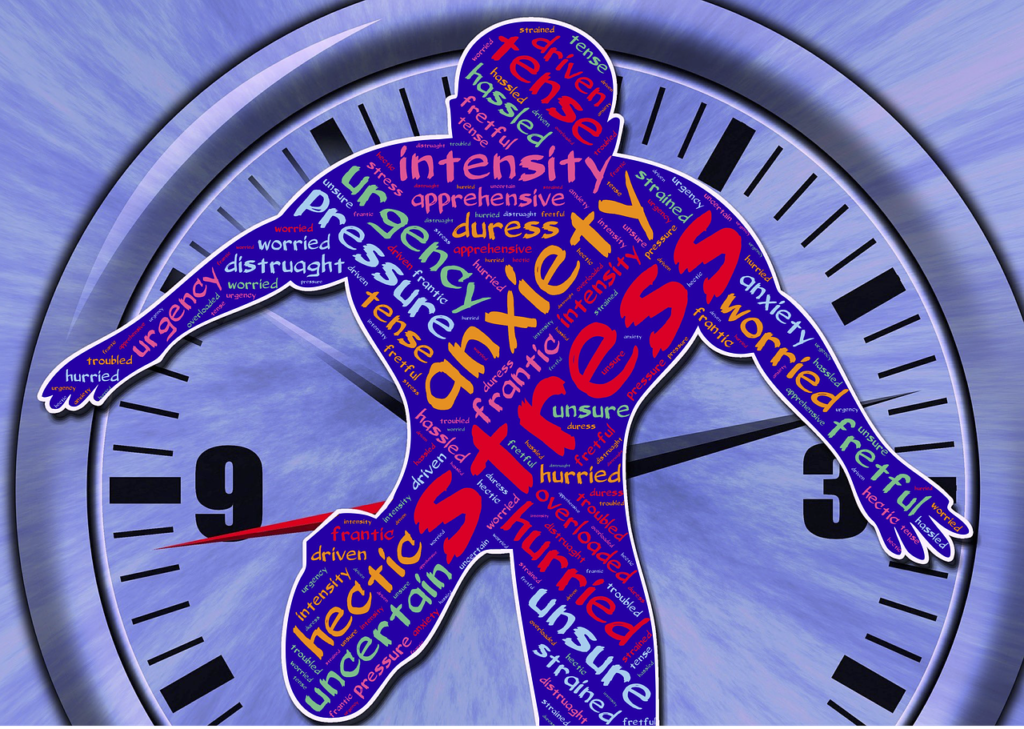Stress and anxiety are a constant presence in the lives of many women. Between balancing careers, family responsibilities, relationships, and personal goals, it’s easy to feel overwhelmed. These feelings are completely valid and not uncommon, but they don’t have to take over your life. Learning about women selfcare and overcoming stress and anxiety is key to living a healthier, more fulfilling life.
This guide is for any woman ready to reclaim her mental well-being. By the end of this read, you’ll walk away with actionable strategies that can help in overcoming stress and anxiety, empowering you to feel calmer and more centered.
Table of Contents
ToggleUnderstanding Stress and Anxiety in Women
For many women, stress and anxiety show up like unwanted guests who refuse to leave. But to get a handle on these emotions, it’s important to first understand them and what might trigger them.
Common Triggers
Some of the most common stressors women face include:
- Work Pressure: Deadlines, long hours, or challenging colleagues can create significant stress.
- Family Responsibilities: Caring for children, aging parents, or managing household duties can feel overwhelming.
- Societal Expectations: Unrealistic ideals pushed by society about how women “should” look, behave, and succeed add extra pressure.
- Financial Concerns: Managing budgets, debts, and financial uncertainty is a persistent worry for many.
- Relationship Issues: Whether it’s conflicts with a partner, a friend, or family member, strained relationships take an emotional toll.
Health Implications
Unchecked stress and anxiety go beyond a temporary feeling. They can manifest in physical symptoms such as headaches, high blood pressure, or sleeplessness. Mentally, they may lead to feelings of irritability, low energy, or even depression over time. Understanding these effects can reinforce why it’s so important to address stress early and proactively.
Identifying Personal Stressors
Everyone’s sources of stress and anxiety are different. Understanding your personal stressors is a crucial first step toward managing them.
- Practice Self-Reflection
Set aside some quiet time to reflect on your day-to-day life. What typically leaves you feeling drained or irritable? Which moments are most overwhelming?
- Track Your Stress
Consider keeping a journal to document moments of stress. Write down when you feel anxious, what triggered it, and how your body reacted. Over time, patterns will emerge to help you identify specific sources of stress.
- Listen to Your Body
Pay attention to physical signs of stress, such as muscle tension, an upset stomach, or fatigue. These are often signals of underlying emotional triggers.
You can’t address what you don’t fully understand, so take this time to identify where stress shows up in your life.
Developing Coping Strategies
Once you’ve pinpointed your stressors, the next step is arming yourself with effective coping strategies. Here are a few approaches worth trying, all of which can be incorporated into your daily routine:
1. Mindfulness and Meditation
Mindfulness involves being fully present without judgment, and it’s one of the most powerful tools for managing anxiety.
- Begin with simple breathing exercises, focusing on inhaling deeply and exhaling slowly.
- Dedicate just 5-10 minutes daily to guided meditations or mindfulness apps like Calm or Headspace.
2. Physical Activity
Exercise is a proven stress reliever. Regular movement helps your body release endorphins, which are natural mood boosters.
- Find something you enjoy, whether it’s yoga, walking, or dancing.
- Even a brisk 10-minute walk around your neighborhood can have immediate benefits.
3. Build a Support System
Share your worries with trusted friends, family members, or colleagues. Sometimes, just venting can alleviate a heavy emotional burden.
- Surround yourself with people who lift you up.
- Don’t hesitate to reach out for advice or practical help when needed.
4. Schedule “Me Time”
Make self-care non-negotiable. Whether it’s indulging in a good book, taking a bath, or enjoying a hobby, prioritize activities that bring you joy and relaxation.
Building Resilience
Resilience doesn’t mean avoiding stress entirely—it means developing the strength to bounce back from challenges. Here are a few ways to cultivate resilience:
- Shift Your Perspective
Reframe negative thoughts by looking for lessons or opportunities in tough situations. For example, instead of seeing a mistake as failure, view it as a necessary step for growth.
- Set Realistic Expectations
You don’t have to do it all or meet every goal perfectly. Learn to celebrate small wins and cut yourself some slack.
- Practice Gratitude
Take a few moments daily to reflect on things you’re grateful for. Gratitude can shift focus away from stressors and help you appreciate positive aspects of life.
Building resilience takes time, but it equips you with a mindset that can handle future stressors gracefully.
Seeking Professional Help For Overcoming Stress and Anxiety
Sometimes, stress and anxiety require professional guidance. There’s no shame in seeking help for overcoming stress and anxiety; in fact, it’s one of the bravest and most proactive steps you can take.
- Therapy
Speaking with a therapist offers a safe space to explore your thoughts and emotions. Techniques like cognitive behavioral therapy (CBT) can be especially effective for managing anxiety.
- Support Groups
Joining a support group connects you with others going through similar experiences, creating a sense of community.
- Hotlines and Resources
Many organizations and mental health websites offer immediate support and tailored tools to help you on your journey.
Remember, seeking help doesn’t mean you’re weak. It means you’re strong enough to seek solutions.
Taking Control of Stress and Anxiety
Overcoming stress and anxiety takes effort, patience, and time—but it’s worth it. By understanding your triggers, adopting healthy coping strategies, building resilience, and reaching out for help when needed, you can regain control of your mental well-being.
Start small by integrating one or two strategies from this guide into your daily routine. Little by little, you’ll make meaningful changes that pave the way for a calmer, healthier, and happier life. There is so much more about ways women can change their lives at Hustling Naari.
Your well-being matters, and you deserve to feel your best. Take that first step today—your future self will thank you.



14 thoughts on “A Practical Guide for Women to Overcoming Stress and Anxiety”
Thanks for sharing. I read many of your blog posts, cool, your blog is very good.
Thanks for sharing. I read many of your blog posts, cool, your blog is very good.
Your point of view caught my eye and was very interesting. Thanks. I have a question for you.
Thank you for your sharing. I am worried that I lack creative ideas. It is your article that makes me full of hope. Thank you. But, I have a question, can you help me?
Thanks for sharing. I read many of your blog posts, cool, your blog is very good.
Thank you for your sharing. I am worried that I lack creative ideas. It is your article that makes me full of hope. Thank you. But, I have a question, can you help me?
Your article helped me a lot, is there any more related content? Thanks!
Your article helped me a lot, is there any more related content? Thanks!
Thank you for your sharing. I am worried that I lack creative ideas. It is your article that makes me full of hope. Thank you. But, I have a question, can you help me?
Thanks for sharing. I read many of your blog posts, cool, your blog is very good.
Thanks for sharing. I read many of your blog posts, cool, your blog is very good.
Can you be more specific about the content of your article? After reading it, I still have some doubts. Hope you can help me.
Your point of view caught my eye and was very interesting. Thanks. I have a question for you.
Your point of view caught my eye and was very interesting. Thanks. I have a question for you.